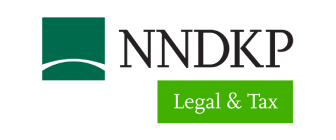In a globally connected creative landscape, where authors collaborate across borders and works circulate digitally with unprecedented speed, the protection of moral rights (personality rights of the author) becomes increasingly relevant. Today’s digital environment enables the rapid creation, distribution, and transformation of literary, musical, visual, and audiovisual works. As companies increasingly rely on creative content, it becomes essential to address moral rights - especially the rights of authorship and integrity - in agreements.
Copyright in Romania is governed by Law No. 8/1996 on copyright and neighboring rights, republished (the “Copyright Law”). The law applies broadly to all original works, whether literary, musical, visual, or audiovisual, regardless of whether they are created or disseminated through traditional or digital means.
Pursuant to Article 10 of Copyright Law, the author of a work benefits of the following five moral rights:
a) the right to decide whether, in what manner and when the work will be brought to public knowledge (the right of disclosure);
b) the right to claim recognition of authorship of the work (the right of attribution);
c) the right to decide under what name the work shall be made known to the public (the right to a name);
d) the right to the integrity of the work and to object to any alteration of, or any interference with, the work if it is prejudicial to his/her honor or reputation (the right of integrity);
e) the right to withdraw the work, compensating, where appropriate, the owners of the rights of use prejudiced by the exercise of the right of withdrawal (the right of withdrawal).
These rights are separate from economic rights and may not be waived or transferred/ alienated. After the death of the author, the rights under letters a), b) and d) are transmitted by inheritance, for an unlimited period, in accordance with the general rules of civil law.
Moral rights are held by authors, including authors of the audiovisual work such as the director or producer, the author of the adaptation, the author of the screenplay, the author of the dialogue, the author of the music specially created for the audiovisual work and the author of the graphics for animated works or of the animation sequences, where the latter form an important part of the work.
Among the above-mentioned, the right of attribution and the right to determine the name under which a work is disclosed are especially relevant in digital contexts. Under Article 35(1)(b) of the Copyright Law, when extracts from a copyright protected work are used without the need for the author’s or right holder consent and remuneration (e.g., for quotation or educational purposes), both the source and the author's name must be indicated, unless this proves impossible. In practice, in the digital environment, this information on the authorship is frequently omitted, also due to technical constraints.
It is also important to note that, in some cases (e.g., those related to designs or inventions), the author/inventor may agree that their name shall not be declared or published, which, however, does not amount to a waiver of the right of attribution.
The right of integrity entitles the author to oppose any distortion, mutilation, modification, or other derogatory treatment of the work. Acts that infringe upon this right may take various forms, including alterations that misrepresent the original creation. Under Romanian Copyright Law, any actions that are prejudicial to the author’s honor or reputation are expressly prohibited. However, the Copyright Law provides that the transformation of a work without the author’s prior consent and without remuneration may be permitted under specific exemption, which reflects the law’s attempt to balance the author’s moral and patrimonial rights with legitimate public and cultural interests.
These exceptions include (i) caricature, parody, or pastiche, provided that the resulting work does not create confusion with the original or mislead as to the identity of its author or (ii) educational use, where the transformation results in a summarized version of the original work intended for teaching purposes, accompanied by appropriate attribution of authorship.
The Romanian Copyright Law contrasts with other jurisdictions (such as the US) where moral rights may be contractually waived under certain conditions. Notably, where the author of a copyright-protected work is a Romanian citizen, or a natural or legal person domiciled or established in Romania, any agreement that includes a waiver or an assignment of the author’s moral rights is unenforceable. This is due to the mandatory and inalienable nature of moral rights under the Romanian Copyright Law.
Given the lack of harmonization of moral rights at EU level, it is important that businesses consider moral rights and conduct a jurisdiction-specific legal analysis, when using or acquiring copyright protected works. Failure to do so may result in unenforceable waivers.
In terms of legal remedies, a breach of moral rights may be addressed through civil actions and also criminal actions (provided that the criminal law requirements are met). According to the provisions of the Copyright Law, among others:
- authors and right holders may request the courts of law and other competent authorities, as the case may be, the recognition of their rights, the cease of the unlawful acts and/or compensation for the damage resulting from the infringement of any protected right;
- the appropriation without right, in whole or in part, of the work of another author and its presentation as his/her own intellectual creation, constitutes a criminal offense. The penalty includes imprisonment from 6 months to 3 years or a fine. This is particularly relevant in cases of plagiarism, either made online or in academic contexts.
In view of the above, we can conclude that as creative works increasingly migrate to digital platforms, the relevance of moral rights is only amplified. As mentioned, moral rights are inalienable and non-transferable, and any contractual waiver or assignment of such rights would not be enforceable. Consequently, in commercial transactions involving copyright-protected works, it is essential to seek specific legal advice to ensure proper recognition, enforcement and handling of moral rights under the applicable national legislation.


